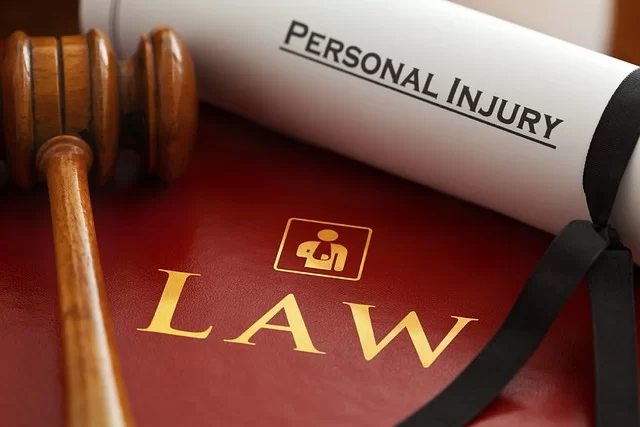Tort or personal injury law protects those damaged by another’s negligence, recklessness, or malicious actions. This statute allows affected parties to seek compensation for medical bills, lost wages, pain and suffering, and other expenditures. Personal injury law covers car accidents, slip-and-falls, medical negligence, and product liability.
Personal Injury Lawyer Role
Personal injury lawyers assist clients who another party’s negligence has injured. These attorneys help victims navigate the complex legal system, gather evidence, negotiate with insurance companies, and, if necessary, go to trial. Their main objective is to get customers fair compensation for their injuries and losses.
Key Personal Injury Lawyer Duties
During the initial consultation in a personal injury lawsuit, the lawyer assesses the case. This involves discussing the occurrence, analyzing medical records and other information, and assessing the case’s viability. The lawyer will also explain the legal process, possible outcomes, and likely case resolution schedule.
Case Investigation
After accepting a case, a lawyer will investigate to acquire all evidence. This may entail getting police reports, interviewing witnesses, consulting medical professionals, and gathering incident footage and photos. The lawyer investigates to prove liability and develop a solid case for the client.
Negotiating insurance companies
Insurance companies sometimes reduce injury settlements. A good personal injury lawyer can negotiate a reasonable settlement with insurers. This requires a well-documented claim, severe injuries, and financial impact on the sufferer. If discussions fail, the lawyer may recommend a lawsuit.
Trials and litigation
A personal injury lawyer will prepare the case for trial if negotiations fail. This includes writing legal documents, submitting motions, and representing clients in court. The lawyer will present facts, interrogate witnesses, and make compelling arguments to persuade the jury to compensate the aggrieved party.
Common personal injury cases
Car accidents are a leading cause of personal injury lawsuits. Accidents caused by irresponsible, intoxicated, or inattentive driving can cause serious injuries and financial losses. A personal injury lawyer proves the other driver’s fault and reimburses automobile accident victims for medical bills, lost wages, and pain and suffering.
Falls and Slips
Slip and fall accidents occur when someone is harmed on someone else’s property due to damp floors, uneven surfaces, or insufficient lighting. Property owners must keep their properties secure or risk being sued for harm. Personal injury lawyers help slip-and-fall victims prove carelessness and get compensation.
Med Malpractice
Medical malpractice occurs when doctors fail to provide the standard of care, causing patient injury or death. Expert testimony is often needed to prove negligence in these complex instances. Medical malpractice lawyers work hard to hold healthcare providers accountable and get their clients compensation.
Products Liability
Product liability cases involve injuries from defective or unsafe items. If their products hurt consumers, manufacturers, distributors, and retailers are accountable. These claims need personal injury lawyers to prove the product was defective, caused the damage, and was used as intended. Claimants might recover medical bills, lost earnings, and other damages.
Timely Action Matters
The statute of limitations, which limits lawsuit filing, is crucial to personal injury law. Timeframes vary by state and damage kind, but they are usually one to six years. Failure to file within this timeframe may result in compensation forfeiture. Personal injury lawyers meet all deadlines and submit claims quickly.
Protecting Evidence
Evidence preservation requires a prompt response. Over time, tangible evidence, memories, and witnesses may disappear. By moving swiftly, personal injury lawyers can gather crucial information and strengthen their cases. Medical records, accident reports, and other claim-supporting documentation are needed.
Selecting a Personal Injury Attorney
When choosing a personal injury lawyer, consider experience and expertise in similar instances. An experienced lawyer will have a solid legal understanding, valuable resources, and a track record of success. Lawyers who specialise in personal injury law and have won cases should be hired.
Feedback from Clients
Client testimonials and reviews might reveal a lawyer’s reputation and skills. Prospective clients should check independent internet evaluations and ask friends and family who have hired the lawyer. Good reviews and ratings indicate a lawyer’s reliability and efficacy.
Communication and Access
Personal injury cases require good communication. Choose a lawyer who is available, responsive, and willing to answer inquiries. A good attorney-client relationship requires regular case updates and clear legal explanations. A lawyer prioritizing communication can reduce stress and ambiguity in personal injury claims.
Obtaining Justice and Compensation
Personal injury lawyers help victims of carelessness get justice and compensation. These experts assist victims in reconstructing their lives and recovering financially by providing excellent legal representation. Personal injury lawyers negotiate or litigate to get their clients the compensation they deserve. Read More
Empowering Victims
Personal injury law helps victims by holding negligent parties accountable and recovering damages. An experienced personal injury lawyer can help victims navigate the legal system, safeguard their rights, and find closure and justice. Accidents and injuries can change lives. Thus, personal injury lawyers are crucial.
